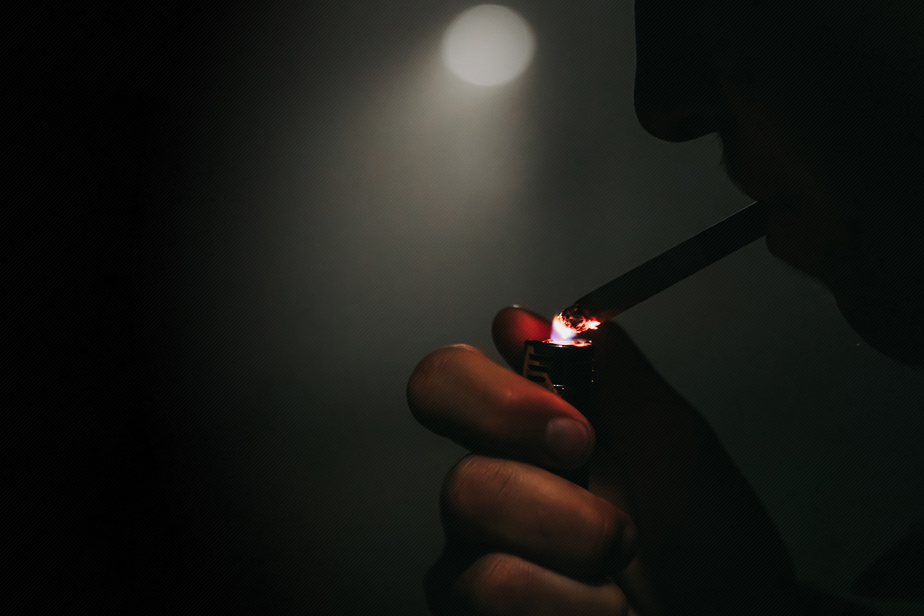Three Quebec theaters – La Bordée, Le Trident and Premier Acte – were fined between 2017 and 2019 after actors smoked sage cigarettes and a fake joint on stage for a total of one year. fifteen minutes (for all three productions). These are the plays Rotterdam (La Bordée), Le cas Joé Ferguson (Le Trident) and Conversation avec un penis (First Act). Alerted by a spectator suffering from asthma (the same in all three cases), the Department of Health and Social Services issued these tickets to the three theaters which, according to state officials, had indeed violated the law against smoking. The law prohibits “any product”, whether it contains tobacco or not, from being smoked in “closed public places”. These tickets, totaling $692, were contested by the three theaters, who invoked the Quebec and Canadian charters of rights and freedoms to defend their freedom of expression and the “representation of the act of smoking.”
In a brief decision rendered in November 2021 by Judge Yannick Couture, the Court of Quebec does not recognize the act of smoking as an “artistic expression.” “The activity in question [the theatrical performance] has no expressive content,” Justice Couture wrote in a five-page decision. That is to say, it is not intended to convey a message or meaning. » A decision which startled the artistic community. Consequently, Justice Couture concluded that this “activity” did not fall “within the scope of the protection offered by the Canadian Charter nor that of the Quebec Charter.” The Court of Quebec thus agreed with the arguments of the Attorney General of Quebec, who defended the pure and simple application of the Law against smoking and the ban on smoking in closed public places. Without exception. Judge Couture also writes that “the law and its regulations make it possible to represent, simulate, play or act out a person who smokes, which constitutes expressive content which is not prohibited.” But the first instance decision was immediately contested by the three theaters involved.
The appeal was heard on October 12 before Judge Jean-François Émond, at the Superior Court of Quebec. First important reversal: Judge Émond recognized that “the act of smoking” on stage was linked to “expressive content”. “We understand very well that to show the distress of a character, for example, an actor smokes on stage, it is an editorial choice. The objective is to seek the best way to represent reality,” he said during the pleadings. The defense lawyer, Me Louis-Philippe Lampron, also highlighted a flaw in the wording of the Anti-Smoking Law. Strictly speaking, it is in fact “the act of smoking” in a closed public place that is prohibited. If a cigarette burns in a vase, he argued, theoretically there is no violation, “yet the smoke is just as harmful.” His counterpart, Me Marie-Eve Pelletier, was concerned to see a breach opening in the law, also supposed to protect workers in the cultural sector. Judge Émond still wondered aloud about the seriousness of the ban, which would be “a first form of censorship” in freedom of artistic expression. “What are we going to want to ban next? Where do we draw the line? “, he asked. Mr. Lampron also insisted on the contract that binds the creators to the public.
Before putting the case under advisement, judge Jean-François Émond still announced his colors. Is a total, wall-to-wall ban the only possible avenue? he asked the Attorney General’s representative. “Are there less harmful ways of achieving the legislative objective? “, he asked. “No,” replied Me Pelletier. There is no safe exposure to second-hand smoke. » Judge Émond seemed to adhere to the principle of the “contract” between creators and spectators. “If the public is informed that there will be smoke during the performance, people will have the choice to attend or not, between consenting adults,” he said. I am inclined to consider that the artistic freedom which is attached to the act of smoking must be explained in a context and that it can be represented in different ways, but that it is always part of artistic freedom. There are degrees of realism, sometimes we will limit ourselves to using a substitute, sometimes we will want to get closer to reality. Where I have questions is on the question of public health. It is said that maximum harm is the only possible option in the circumstances. Is this the case? Couldn’t public consent, if clearly informed, constitute a lesser infringement? Is zero risk a valid measure to justify the infringement of a fundamental right? »
The decision should be rendered by next April. If Judge Émond decides the debate in the way he suggested, the Attorney General of Quebec could be tempted to appeal, given his firm position on the issue. The case could therefore be heard in the Supreme Court in the coming months or years. A file to follow.
